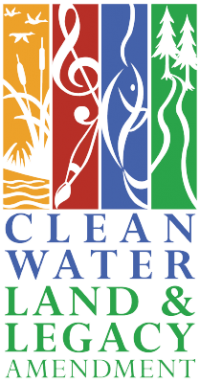The Watershed Based Implementation Funding (WBIF) Grant Program is an alternative to the traditional project-by-project competitive process often used to fund water quality improvement projects. This funding allows collaborating local and Tribal governments to pursue timely solutions based on a watershed's highest priority needs.
Overview
BWSR is using watershed based implementation funding to accelerate water management outcomes and improve consistency and efficiency across the state.
- This approach integrates available data with a reliable source of funding that helps local and Tribal governments spend limited resources where they are most needed, reduces time spent on competitive grant applications and enhances science-based decision making.
- The approach depends on comprehensive watershed management plans developed under One Watershed, One Plan program or the Metropolitan Surface or Ground Water Management framework to provide assurance that actions are prioritized, targeted and measurable.
- The primary purpose of activities funded through this program is to implement projects and programs that protect, enhance, and restore surface water quality in lakes, rivers, and streams; protect groundwater from degradation; and protect drinking water sources.
- FY26-27 Information
- Board Order #25-42
- Allocation amounts and allocation years
- FY26_27 WBIF Program Requirements (these requirements will be attached to grant agreements as "Exhibit A")
- Statewide and Metro Maps
Timelines: BWSR will process funding requests and workplans on a monthly basis - due on the last business day of the month.
Funding requests for Allocation Year* 2026 open September 2, 2025.
Funding requests for Allocation Year* 2027 open June 1, 2026.
All grant agreements must be executed by June 1 of the fiscal year in which the funding request was started.
Funding requests should be submitted by April 30 of the fiscal year in which the grant will be executed.
*Refers to fiscal years, FY2026 = July 1, 2025 – June 30-2026. 2027 = July 1, 2026 – June 30, 2027.
Grant Agreement Expiration Dates
Grant agreements executed in FY2026 will expire on December 31, 2028.
Grant agreements executed in FY2027 will expire on December 31, 2029.
Metro Area Only
In addition to the information above, the following resources relate only to the metro area eligible entities.
- General Program Resources
- WBIF Funding Request and Work Plan Guidance
- WBIF Frequently Asked Questions (FAQ)
- WBIF Assurance Measures
- Approved Comprehensive Watershed Management Plans
- WBIF Grant Reporting Profile (includes links to policies from FY18, FY20-21, FY22-23, and FY24-25)
- WBIF Fact Sheet (pdf)
- WBIF Guiding Principles

